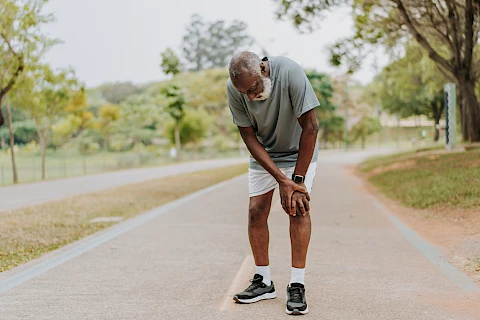
Caring for our seniors' health requires dedication, patience, and, above all, accurate information. Bone health, in particular, is a crucial aspect of seniors' well-being that often gets clouded by myths and misconceptions. For caregivers, understanding the truth about bone health can make a world of difference in how they approach their charge's care.
Myth 1: Seniors Don't Need Regular Exercise for Bone Health
This misconception couldn't be further from the truth. Like muscles, bones respond to exercise by becoming stronger. Regular physical activity is important for seniors as it improves balance, coordination, and muscle strength, reducing the risk of falls and fractures. Weight-bearing exercises, where you move against gravity while staying upright, can be particularly beneficial for bone health. So it's critical that as a caregiver, you encourage and facilitate regular, appropriate exercise for your senior's overall well-being. Always check with your senior loved one’s physician before starting new exercises.
Myth 2: Only Women Need to Worry About Bone Health
Although women are more susceptible to osteoporosis, men are not immune to it. Men also lose bone density as they age, and they can suffer from serious complications due to bone fractures. Both genders should pay attention to bone health as they age. As a caregiver, ensuring a proper diet and adequate exercise for your senior, irrespective of their gender, is key.
Myth 3: Bone Loss Is an Inevitable Part of Aging
It's true that as we age, our bones naturally lose density, making them more susceptible to fractures. However, this doesn't mean that severe bone loss and osteoporosis are inevitable. Dietary changes, such as increasing calcium and Vitamin D intake, along with regular exercise, can significantly slow bone loss. Additionally, it's crucial to avoid smoking and excessive alcohol intake, both of which can accelerate bone loss.
Myth 4: Calcium Supplements Alone Can Prevent Bone Loss
Calcium plays a significant role in maintaining bone health, but it's not the only player. Other nutrients, like Vitamin D, Vitamin K, and magnesium, also contribute significantly to bone health. Vitamin D, for instance, aids in calcium absorption, while Vitamin K and magnesium contribute to bone mineralization. Therefore, a balanced diet that provides these essential nutrients is more effective in maintaining bone health than just calcium supplements.
Myth 5: Seniors Should Avoid Weight-Bearing Exercises
Contrary to this common belief, weight-bearing exercises can be highly beneficial for seniors. These include activities where you carry your weight, such as walking, stair climbing, or resistance exercises. They help to stimulate bone formation, improve balance, and increase muscle strength, reducing the risk of falls and fractures. However, the exercise regimen should always be tailored to the individual's capacity and current health status, preferably under the guidance of professionals.
Senior Helpers Jacksonville Helps Seniors Boost Their Bone Health
Caregiving for seniors can be complex and demanding, but accurate information can make it easier. We can foster a more informed approach to maintaining bone health by debunking these common myths.
If you live in Jacksonville, Jacksonville Beaches, Arlington, Ft. Caroline, or Yulee, our team at Senior Helpers Jacksonville provides comprehensive care services designed to boost seniors’ bone health and overall well-being. Through personalized exercise programs, nutritious meal planning, and assistance with medication management, we ensure that seniors receive the necessary support to maintain strong bones. In addition to bone health, Senior Helpers Jacksonville offers a range of services, including companionship and personal care, tailored to each senior's unique needs. By addressing both physical health and emotional well-being, we enable seniors to enjoy a higher quality of life. For more information about our services, don't hesitate to contact us.